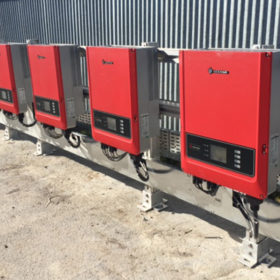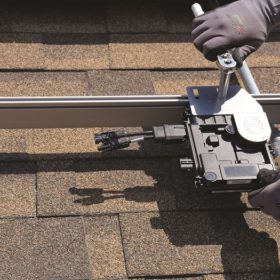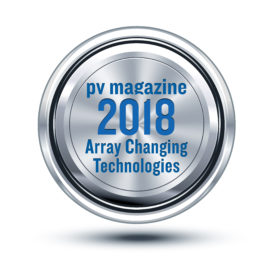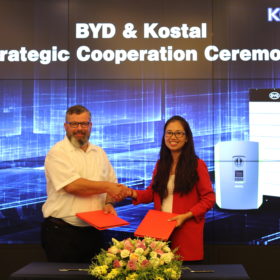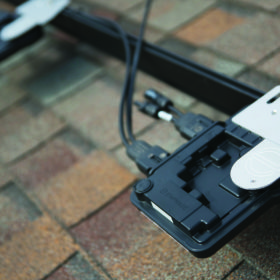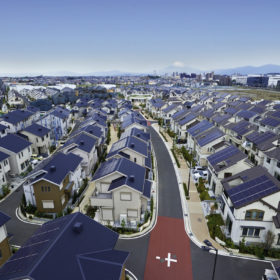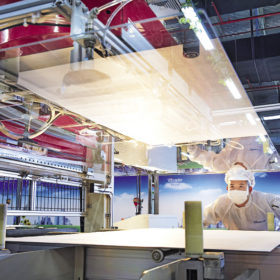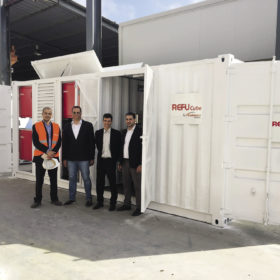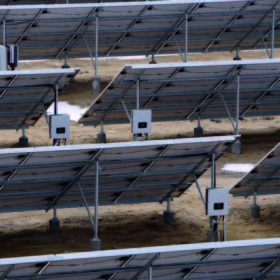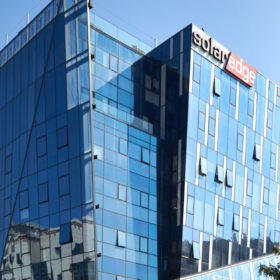Interview: GoodWe talks IPOs, policy changes and tripling production capacity
In an interview with pv magazine, vice president of GoodWe, Ron Shen, talks about the company’s plans for Germany, Spain, Africa and India, in addition to its goal to triple production capacity to 15 GW in China. He also discusses the effect of China’s 31/5 policy change, and plans for an initial public offering (IPO).
Flex to manufacture Enphase products in Mexico
The U.S. microinverter maker has said the capacity increase will be made under its partnership with the Flex Group. It will start delivering devices produced in Mexico to the U.S. market, starting in the second quarter of 2019.
Array Changing Technologies 2018: The winners
After plenty of deliberations from the jury of independent PV industry experts assembled by pv magazine, we are pleased to announce the top innovations selected in the Array Changing Technologies 2018.
BYD, Kostal announce energy storage partnership
Following on from a partnership in 2017, Kostal and BYD are looking to further strengthen their ties under a new deal, which will see them provide storage solutions to the residential and commercial solar segments.
Enphase boosts confidence, touts technology during analyst day
While the microinverter maker is still the target of an aggressive short, Roth Capital Partners has reiterated its “buy” at $6.50 per share, describing the IQ8 as a “game changer”.
Japan’s PV sector should focus on future energy mix target — report
The Japanese PV industry should respond to the government’s recent decision to leave its 2030 energy mix targets unchanged by pushing for a higher share of solar in the next version of the country’s strategic energy plan, according to a new report.
Trump confirms additional 25% tariffs on Chinese cells and modules
While the duties make importing solar from China even more impractical, they are unlikely to have a significant impact on trade flows or on the U.S. market, with Chinese manufacturers outsourcing operations overseas.
The weekend read: More strings to the bow
New developments in inverter architecture suggest that string inverters have charged forwards again to take on the challenge and kick central inverters off the throne in the utility-scale market. Hardware design innovations allowing to cut down BoS capex and improve efficiency of the plants might push string inverters further to take more space in the utility-scale market place.
Huawei cites IP track record in response to SolarEdge complaint
Huawei spoke to pv magazine in response to the latest allegations made by SolarEdge regarding the latter’s allegedly infringed intellectual property. Huawei is adamant it is one of the world’s largest owners of intellectual property rights and fully supports the protection of IP. The Chinese manufacturer denies the claims made by SolarEdge and points to its extensive IP and research and development (R&D) efforts to support its defense.
SolarEdge reports record revenues in second-quarter results
The company has experienced continued growth and after the acquisition of a UPS supplier – as well the potential for Chinese power electronics manufacturers to suffer under proposed new inverter tariffs – SolarEdge feels confident of continued growth.
